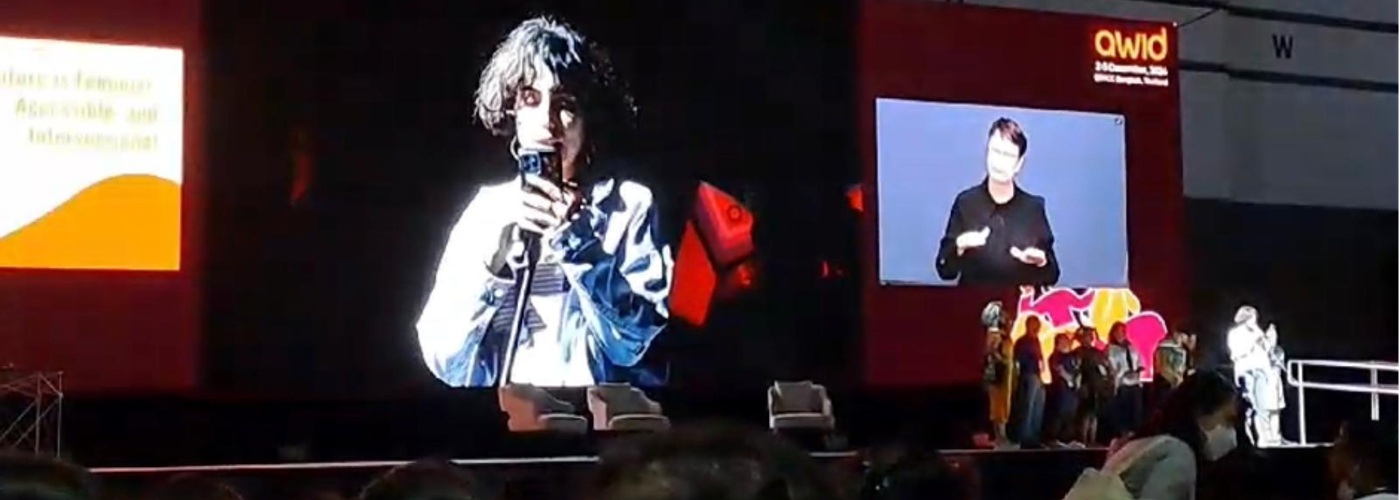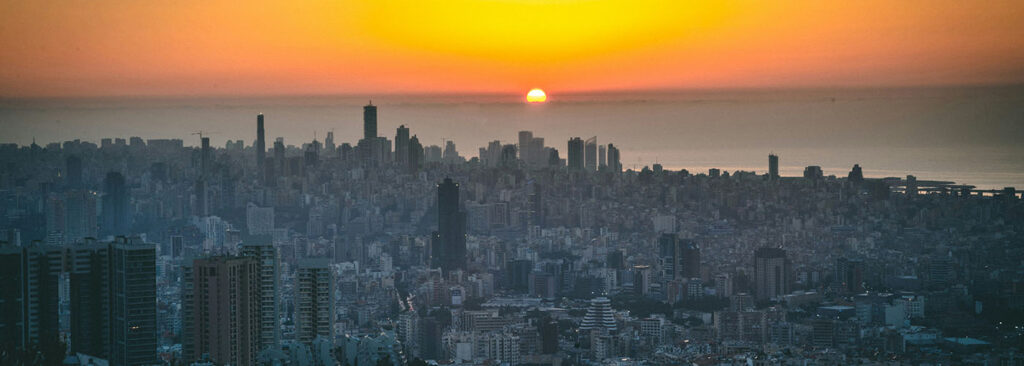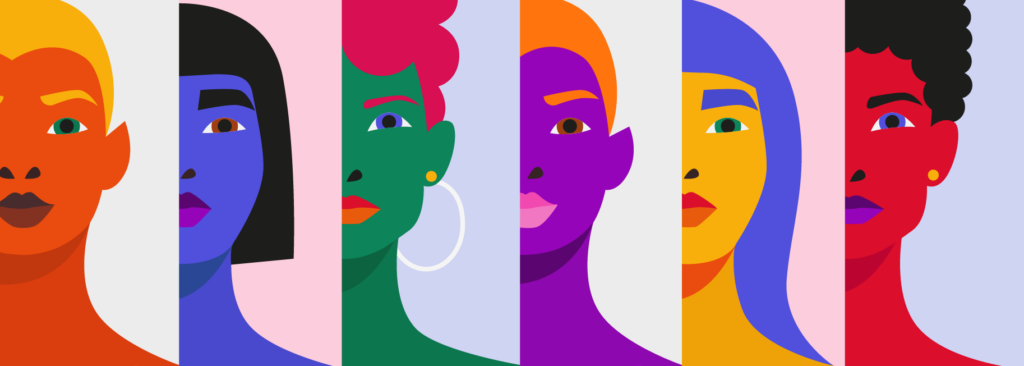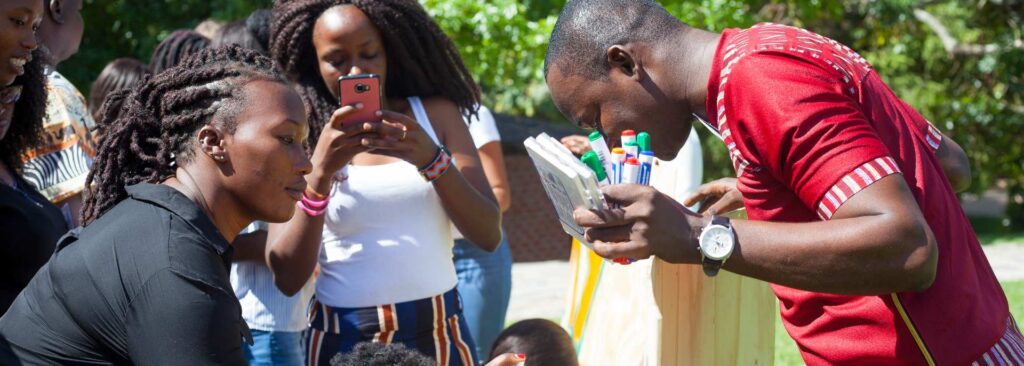By Mariam Khalaf, Hivos – We Lead MENA
From December 2 to 5, feminists from all over the world gathered in Bangkok for the AWID Forum. This global conference offers a space for activists to connect, learn and grow. I run the We Lead program in the MENA region and I attended the conference with a team of our rights holders.
Carrying on through profound turmoil
As I write this, our region is engulfed in profound turmoil. The genocide in Gaza and the intensified Israeli attacks on Lebanon have made 2024 extraordinarily challenging for everyone involved in the We Lead program, especially our team in Lebanon. But they have carried on under these extreme circumstances with an extraordinary sense of responsibility and commitment.
Earlier this year, We Lead’s Community of Action (CoA) developed a session for the AWID conference called “Feminist Organizing in Crisis Contexts: Experiences from Lebanon.“ At the time, none of them could have foreseen Israel’s intensified attacks on Lebanon that started with electronic devices in mid-September. The air strikes that followed resulted in unprecedented destruction and mass displacement, particularly in the country’s southern regions.
Because of the consequent logistical challenges and visa restrictions, only the CoA Facilitator and two CoA members – Nour Nahhas, Sarah Kaddoura and Yara Ayoub – were able to attend the AWID Forum in person, while Widad Al Sabeh joined virtually.
We Lead’s session on feminist organizing during conflict
The session examined both the crucial importance and immense challenges of feminist organizing in crisis contexts, and they called for changes to foreign donors’ restrictive funding procedures for feminist grassroots and community-led organizations.
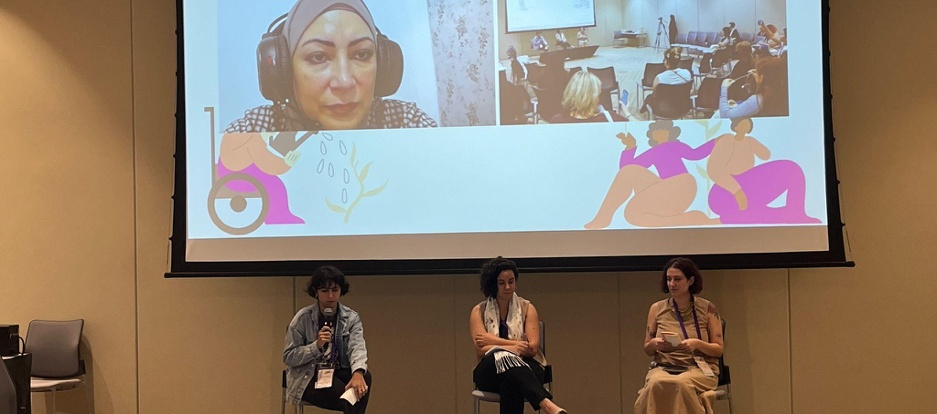
The main challenges they identified, similar to those faced by other organizations supporting rights holders in Lebanon, including displaced populations, are a severe lack of resources and the administrative inflexibility of larger institutional donors. This was also a recurring theme in nearly all AWID sessions.
The speakers described how rigid and unpredictable funding mechanisms often delay or obstruct timely responses, forcing grassroots organizations to use up limited resources or seek help from local charitable individuals. The session urgently called for systemic change, noting that even the smallest administrative tasks had become significant barriers to their ability to respond effectively.
But they also made clear that resilience, solidarity, responsibility, and compassion are powerful driving forces behind the exceptional efforts of feminist and grassroots organizations.
Another silver lining in the cloud is the effectiveness of localized, collaborative approaches to service delivery. Nour, Sarah, Widad and Yara all agreed that their deep connections with the communities and rights holders they serve enabled them to mobilize quickly and effectively, even under immense pressure, and amid competing priorities and financial constraints.
An emotional Q&A
During the Q&A, several young women from Lebanon shared harrowing accounts of their lived experiences. Their stories are a powerful reminder to donors and the global feminist movement of the importance of flexibility, sustained support, and genuine solidarity. These feminist voices appealed to the world not just to listen, but to act with compassion, urgency, and a steadfast sense of shared responsibility.
AWID’s final call to action
AWID’s closing plenary offered a powerful platform for young feminists to issue calls to action for global feminist movements. We Lead’s Nour passionately urged attendees “to hold their governments accountable for enabling impunity and complicity in Israel’s acts of genocide.” She called for “collective efforts to impose an arms embargo, challenge the global culture of indifference toward Palestinian liberation, and demand an immediate ceasefire.”
Many other feminists echoed these sentiments, emphasizing that a free Palestine is a feminist issue—and a struggle strongly supported by feminists at AWID and many others around the world.

